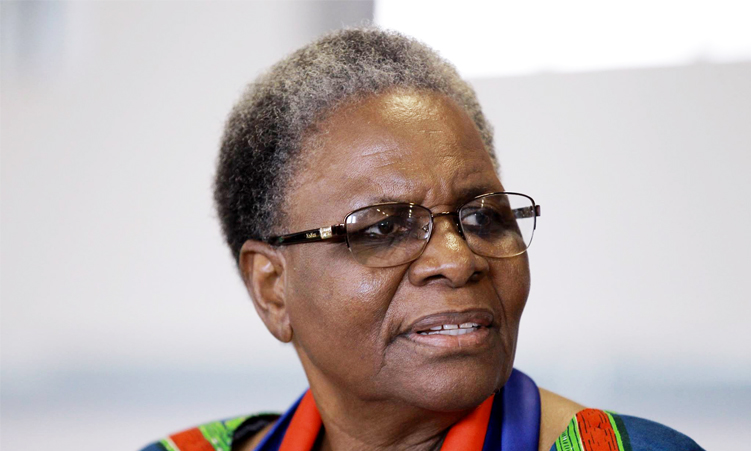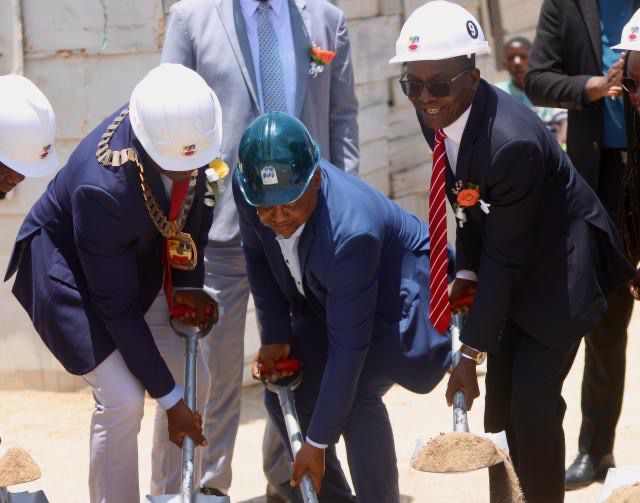AFRICAN communities are gathering to take up the fight against international companies which are mining uranium on their land and their own governments, as they are driven off their land, suffer exposure to radiation and toxic waste at mining sites, a seminar on uranium mining was informed.
“We have formed a civil society organisation and took the Australian mining company Paladin to court,” Reinford Mwangobe of Citizens for Justice (CFJ) told the seminar, organised by Earthlife Namibia and the Labour Resource and Research Institute (LaRRi). “The matter was then settled out of court and Paladin, which also has a uranium mine in Namibia, made some concessions like agreeing to pay US$10 million for social development projects and clean water provision to the rural communities in the mining area.”Mwangobe said 12 Australian companies would start mining uranium in Malawi soon, with Paladin starting in January 2009.Malawi had no laws in place for handling and transporting radioactive materials, Mwangobe added.”Rural people who had lived for decades on their ancestral land were kicked off and only paid US$70 as compensation.The locals have no benefits from mining, only some government officials and Paladin,” he stated.”The best way to act against such companies was to take the case to their own countries and alert shareholders who did not want bad publicity and their share prices drop.”A representative from Tanzania, Anthony Lyamunda, said 20 international companies were lined up for uranium mining in his country.His people recently started the civil society Foundation for Environmental Management and Campaign Against Poverty (Femapo) to help 450 000 rural people living in 786 villages in the areas were uranium mining was taking place or planned.”These activities are threatening our natural resources, which we need to survive and we plan a uranium conference in the affected regions of our country and a national one early 2009,” Lyamunda told the 50 participants.A member of the Topnaar community in the Namib-Naukluft Park, where about 20 uranium-mining companies are prospecting for uranium, attended the seminar with a member of the Nama community from Warmbad in southern Namibia, where “heavy drilling, prospecting and destruction” of their land took place, as Gerald Ruiters put it.”What will Earthlife Namibia do as civil society organisation? Will you be able to drag these companies to court? We are living there since the 16th century and nobody has consulted us, people just arrive and carry out these activities,” Ruiters criticised.Bertchen Kohrs of Earthlife said the NGO had commissioned several studies on the environmental risks of uranium mining and the public seminar, co-organised with LaRRi, was one of several activities.”We are at the start of a big uranium rush in Namibia and campaigning activities will unfold accordingly,” Kohrs said.”The matter was then settled out of court and Paladin, which also has a uranium mine in Namibia, made some concessions like agreeing to pay US$10 million for social development projects and clean water provision to the rural communities in the mining area.”Mwangobe said 12 Australian companies would start mining uranium in Malawi soon, with Paladin starting in January 2009.Malawi had no laws in place for handling and transporting radioactive materials, Mwangobe added. “Rural people who had lived for decades on their ancestral land were kicked off and only paid US$70 as compensation.The locals have no benefits from mining, only some government officials and Paladin,” he stated.”The best way to act against such companies was to take the case to their own countries and alert shareholders who did not want bad publicity and their share prices drop.”A representative from Tanzania, Anthony Lyamunda, said 20 international companies were lined up for uranium mining in his country.His people recently started the civil society Foundation for Environmental Management and Campaign Against Poverty (Femapo) to help 450 000 rural people living in 786 villages in the areas were uranium mining was taking place or planned.”These activities are threatening our natural resources, which we need to survive and we plan a uranium conference in the affected regions of our country and a national one early 2009,” Lyamunda told the 50 participants.A member of the Topnaar community in the Namib-Naukluft Park, where about 20 uranium-mining companies are prospecting for uranium, attended the seminar with a member of the Nama community from Warmbad in southern Namibia, where “heavy drilling, prospecting and destruction” of their land took place, as Gerald Ruiters put it.”What will Earthlife Namibia do as civil society organisation? Will you be able to drag these companies to court? We are living there since the 16th century and nobody has consulted us, people just arrive and carry out these activities,” Ruiters criticised.Bertchen Kohrs of Earthlife said the NGO had commissioned several studies on the environmental risks of uranium mining and the public seminar, co-organised with LaRRi, was one of several activities.”We are at the start of a big uranium rush in Namibia and campaigning activities will unfold accordingly,” Kohrs said.
Stay informed with The Namibian – your source for credible journalism. Get in-depth reporting and opinions for
only N$85 a month. Invest in journalism, invest in democracy –
Subscribe Now!






